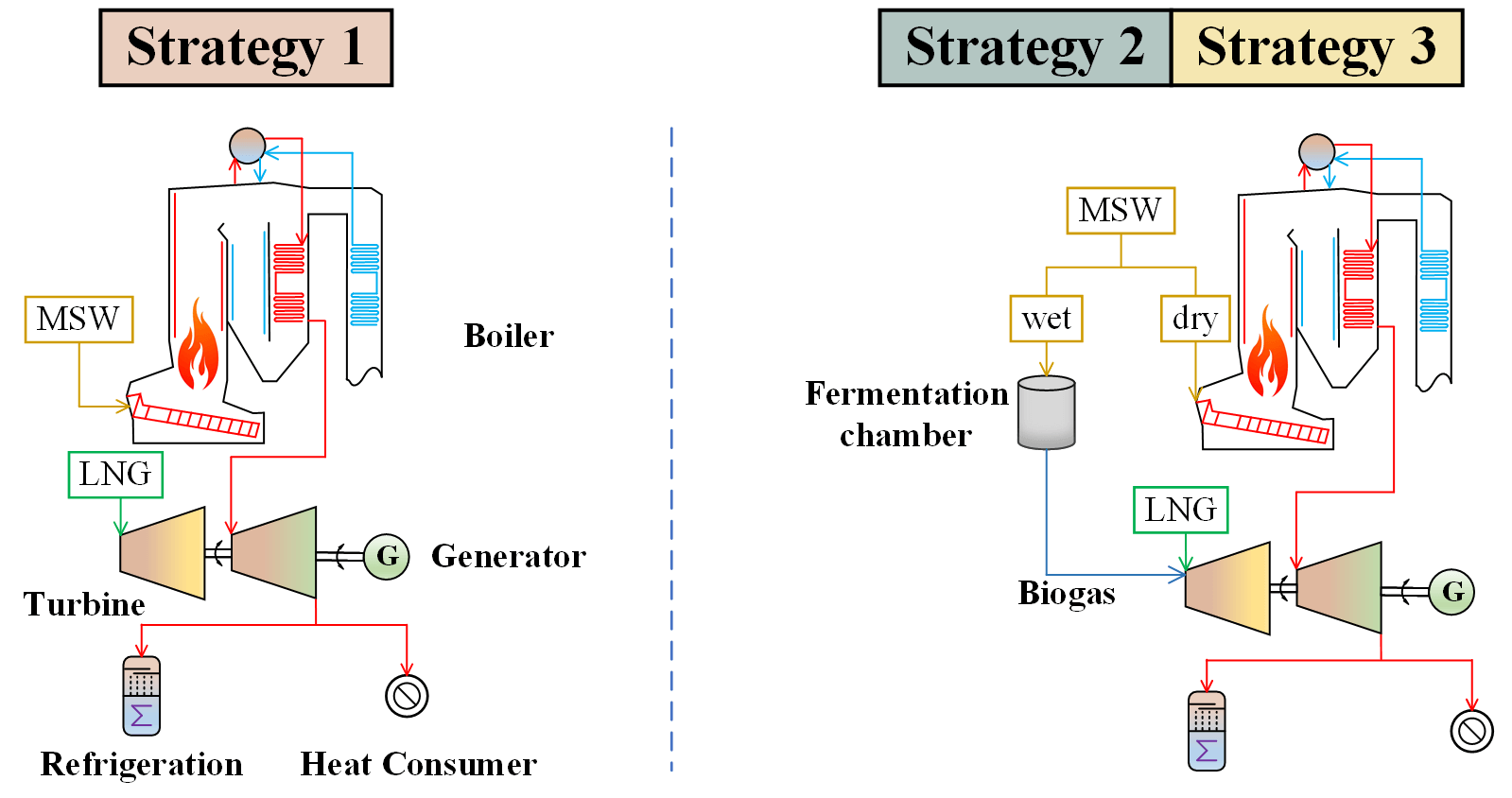 Open Access
Open Access
ARTICLE
Analysis and Economic Evaluation of Hourly Operation Strategy Based on MSW Classification and LNG Multi-Generation System
School of Energy and Power Engineering, Shandong University, Jinan, 250061, China
* Corresponding Author: Yuetao Shi. Email:
(This article belongs to the Special Issue: Key Technologies of Renewable Energy Consumption and Optimal Operation under )
Energy Engineering 2023, 120(6), 1325-1352. https://doi.org/10.32604/ee.2023.026142
Received 19 August 2022; Accepted 24 November 2022; Issue published 03 April 2023
Abstract
In this study, a model of combined cooling, heating and power system with municipal solid waste (MSW) and liquefied natural gas (LNG) as energy sources was proposed and developed based on the energy demand of a large community, and MSW was classified and utilized. The system operated by determining power by heating load, and measures were taken to reduce operating costs by purchasing and selling LNG, natural gas (NG), cooling, heating, and power. Based on this system model, three operation strategies were proposed based on whether MSW was classified and the length of kitchen waste fermentation time, and each strategy was simulated hourly throughout the year. The results showed that the strategy of MSW classified and centralized fermentation of kitchen waste in summer (i.e., strategy 3) required the least total amount of LNG for the whole year, which was 47701.77 t. In terms of total annual cost expenditure, strategy 3 had the best overall economy, with the lowest total annual expenditure of 2.7730 × 108 RMB at LNG and NG unit prices of 4 and 4.2 RMB/kg, respectively. The lower heating value of biogas produced by fermentation of kitchen waste from MSW being classified was higher than that of MSW before being classified, so the average annual thermal economy of the operating strategy of MSW being classified was better than that of MSW not being classified. Among the strategies in which MSW was classified and utilized, strategy 3 could better meet the load demand of users in the corresponding season, and thus this strategy had better thermal economy than the strategy of year-round fermentation of kitchen waste (i.e., strategy 2). The hourly analysis data showed that the net electrical efficiency of the system varies in the same trend as the cooling, heating and power loads in all seasons, while the relationship between the energy utilization efficiency and load varied from season to season. This study can provide guidance for the practical application of MSW being classified in the system.Graphic Abstract

Keywords
Cite This Article
 Copyright © 2023 The Author(s). Published by Tech Science Press.
Copyright © 2023 The Author(s). Published by Tech Science Press.This work is licensed under a Creative Commons Attribution 4.0 International License , which permits unrestricted use, distribution, and reproduction in any medium, provided the original work is properly cited.


 Submit a Paper
Submit a Paper Propose a Special lssue
Propose a Special lssue View Full Text
View Full Text Download PDF
Download PDF Downloads
Downloads
 Citation Tools
Citation Tools